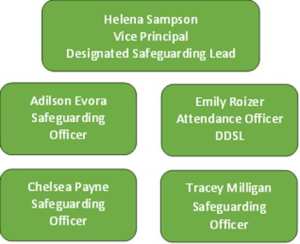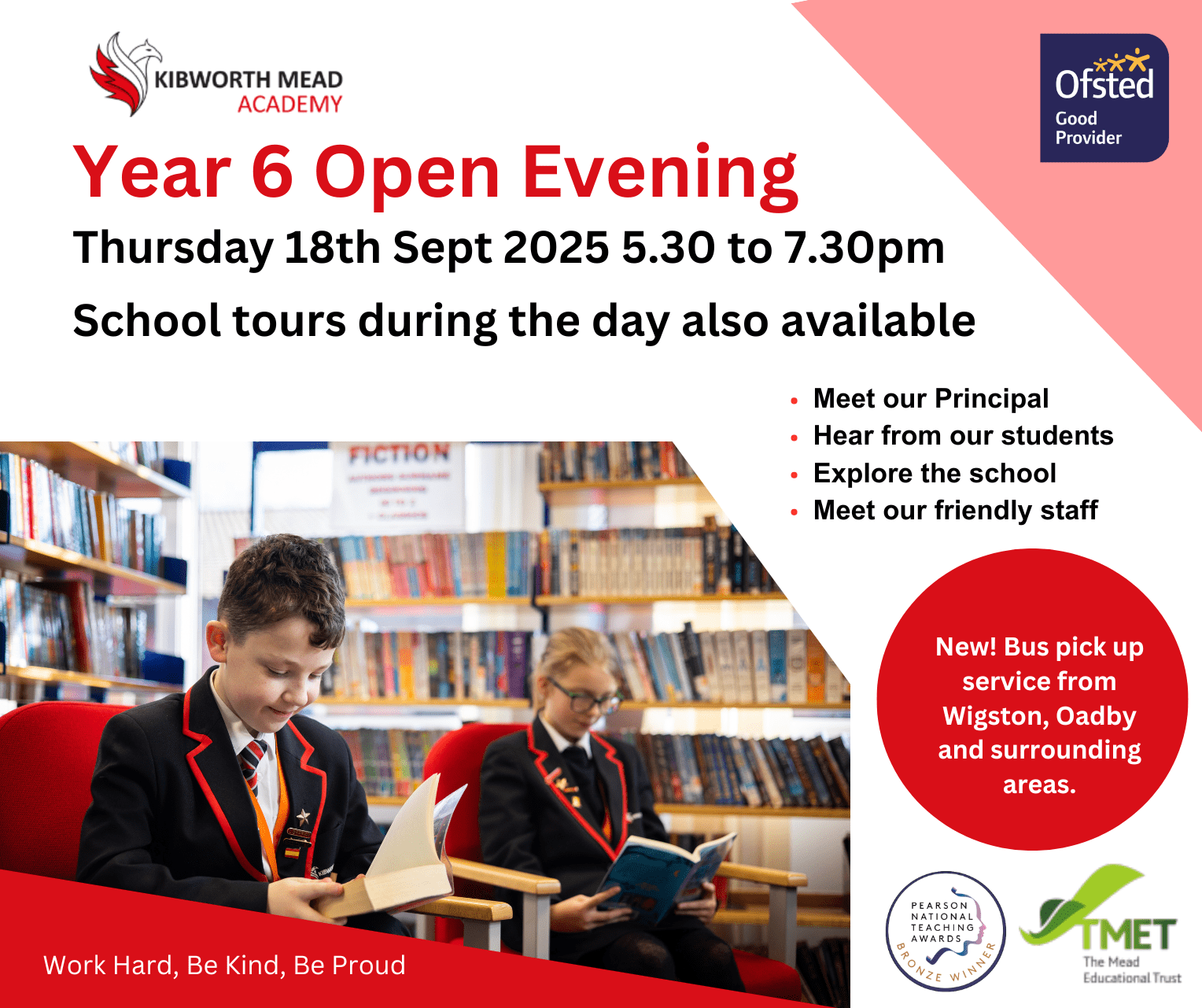Where can I access help and support?
Hi, my name is Mrs Helena Sampson, and I am the Designated Safeguarding Lead (DSL) at Kibworth Mead Academy.
We are absolutely committed to creating a happy and safe environment for all members of our academy community. We work closely with students, their parents, and carers in order to ensure that our young people are safe both inside and outside of school.
Students are taught how to keep themselves safe through PSHE lessons, tutorials, and other wider experiences such as taking part in workshops and watching performances. At Kibworth Mead Academy we aim to ensure that all students learn how to keep themselves safe both on and off-line, how to have safe and healthy relationships and how to avoid exploitation.
To ensure that all members of our academy are safe and well we liaise closely with the following agencies:
- Local Safeguarding and Children Board
- Children and Young People’s Services
- Child Protection Unit
- School Health
- CAMHS
- Educational Psychology
- Open Door Leicester
- Looked After Children Service
We are here to help, email us at [email protected]
Kibworth Mead Safeguarding and Child Protection Policy
I have a concern about a child
If you are ever concerned about the safety or wellbeing of someone at our academy, please talk to myself or one of my Deputy Designated Safeguarding Leads immediately:
H Sampson
A Hernandez Evora
S Piggot
T Milligan
M Stanton
P Thompson
K Rees
C Payne
B Palmer
E Roizer
If you have any safeguarding concerns about a child at Kibworth Mead Academy outside of school hours, please call Social Care on 0116 305 0005 or the NSPCC on 0808 800 5000. Further information can be found by following the links below. Concerns can also be sent to school via our email address [email protected] This email will be sent to our safeguarding team at the school and will be monitored throughout the year however, if the concern relates to immediate danger or harm to a child please contact Social Care on the above number immediately.
Useful Links
Parents and Carers may find the links and documents helpful:
www.thinkuknow.co.uk – Help and advice about online safety
Children’s Online Safety Test | Virgin Media O2
If you are a young person, you may find the following information helpful:
www.healthforteens.co.uk
www.kooth.com – confidential online support for young people
www.healthforteens.co.uk – Health advice for young people
www.thinkuknow.co.uk – Aged 11-13? Look at this website for help and advice about online safety
www.thinkuknow.co.uk – Aged 14 or over? Look at this website for help and advice about online safety
Dedicated helpline for victims of abuse in schools | NSPCC
Social Services Leicestershire
Advice and Guidance
Our TALK checklist offers parents/carers advice on how to have useful conversations with your child.
Gurls Out Loud offers simple guidance for young people on what to do if they’re approached for nudes online.
Advice from the Met Police on what sextortion is and what to do if you’ve been targeted.
Get Safe Online offers advice if you’ve been a victim of blackmail or online grooming and online safety guidance.
CEOP Education provides a variety of guidance for children, parents/carers and professionals working with young people.
National Cyber Security Centre
A helpful guide from the National Cyber Security Centre on how to protect yourself from sextortion phishing scams.
StopNCII.org helps people have non-consensual intimate images (nudes, explicit images etc.) removed from the internet.
Help and Support

Childline
Childline offers support and guidance for children on a variety of issues including what to do if you’re being pressured to share sexual images or videos of yourself.

Marie Collins Foundation
The Marie Collins Foundation offers free support for victims and survivors of sexual abuse. Specialist staff can offer someone to talk to, support and practical advice.

Samaritans
Samaritans offer a non-judgemental person to talk to. Call, email or live chat with them anytime. Call free on 116 123.

Victim Support
Victim Support is an independent charity dedicated to supporting victims of crime and traumatic incidents in England and Wales.

Papyrus
Are you, or is a young person you know, not coping with life? PAPYRUS Prevention of Young Suicide offers a 24/7 helpline to speak with an understanding and non-judgemental person. Call free on 0800 068 41 41.

Shout 85258
If you would prefer not to talk but want some mental health support, you can text SHOUT to 85258. Shout offers a confidential 24/7 text service providing support if you are in crisis and need immediate help.

CALM
CALM (Campaign Against Living Miserably) offer support for people over the age of 15 who are having suicidal thoughts or feelings. Open from 5pm to midnight every day of the year: 0800 58 58 58.

Hub of Hope
Hub of Hope offers a database of mental health support organisations for people experiencing mental and emotional distress.

YoungMinds
Self-harm | Advice for young people | Get help | YoungMinds offers support around Self Harm for children and parents/carers.










 Work Hard, Be Kind, Be Proud
Work Hard, Be Kind, Be Proud